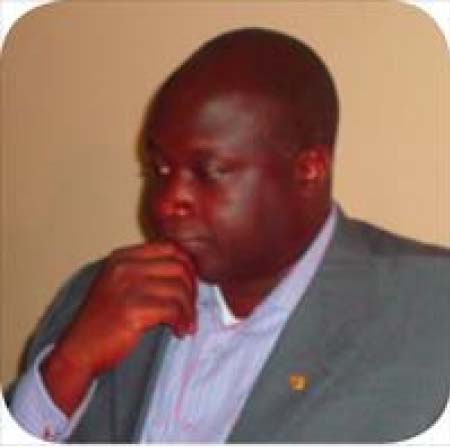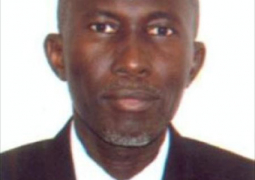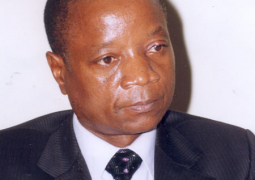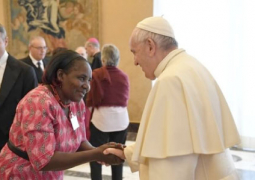
The Banjul High Court presided over by Justice Mohammed Dan Azumi Balarabe yesterday heard the bail application filed by lawyers on behalf of the accused persons.
The accused persons are Dr Alasan Bah, Ebrima Jawara, Sulayman Manneh, Lamin Fatajo and Momodou Lamin Mass.
Defence counsel Hawa Sissay-Sabally, Ida Drammeh, E. Singhateh and S. Gaye represented the applicants; the state counsel were led by A.M. Yusuf
Ebrima Jawara and his co-accused were, on 7 September 2015, arraigned before Magistrate Fatou Darboe of the Banjul Magistrates’ Court on a ten-count charge ranging from economic crime, stealing by clerk or servant, to theft and abuse of office.
They all denied the charge and the case was subsequently transferred to the high court for lack of jurisdiction.
When the case was called yesterday, senior counsel Ida Drammeh, representing the 2nd accused, Ebrima Jawara, said she wanted to draw the attention of the court to the fact that the affidavit in opposition she was served with did not disclose the date it had been sworn on.
This was an application seeking the applicant to be granted bail supported by an affidavit sworn to by the applicant’s wife, she said.
As the court might be aware, the offences were all bailable and were brought under the economic crime specified offences Act, she added.
The charge sheet contained the charges brought before the Banjul Magistrates’ Court, and the significance of that would not be lost to the court or “anybody who understands the laws on jurisdiction”, counsel further submitted.
Counsel Drammeh further stated that the economic crime specify offences Act prescribes that charges related to economic crimes must be heard at the high court.
She added that anybody who brings it before the Banjul Magistrates’ Court “does it with a particular intent”, adding that the intent was that the prosecution would commit the accused to prison.
Counsel also said the respondent in their affidavit stated that the offence the accused are charged with is a serious offence and he would abscond when released on bail. This, she said, was “baseless”.
“It is my submission that the court can ignore all the paragraphs in an undated affidavit in opposition, because they did not answer any point of substance and the paragraph failed,” she continued.
“It is my further submission that the bail application is properly made, and the court should exercise its discretion in favour of granting bail to the accused,” counsel added.
“It is also my submission that the conditions ought to be reasonable otherwise it will be as good as not granting bail,” she went on.
Also making her submission, senior counsel Hawa Sisay-Sabally, who represented the 1st accused, Alassan Bah, said there was an application before the court brought under section 19(5), 24(3), 37 of the constitution and relying on section 8 of the economic crime specify offences Act.
The application was supported by an affidavit sworn to on 17 September 2015, and they are relying on all paragraphs, she told the court, adding that attached to the affidavit was exhibit A1, which was the charge sheet at the Banjul Magistrates’ Court filed by the police.
Counsel Sisay-Sabally further said they had also filed an additional affidavit sworn to by Njameh Ndure and exhibit A2, which was a medical report from Sheikh Zayed Regional Eye Care Centre.
They were served with an affidavit in opposition in court, and had filed an affidavit in reply, and in their affidavit in support, they had deposed to the fact that the applicant “no longer works for government”.
The applicant had worked for the Ministry of Agriculture for 33 years prior to his termination as the coordinator of Rural Finance Project.
At the time of the applicant’s arrest, he had already undergone surgery on one of his eyes, which is very crucial in the case.
She said none of the paragraphs of the affidavit in support, additional affidavit or in reply had been denied by the respondent.
Counsel further said that the applicant had made it a fact that he would not interfere with the potential witnesses or investigations.
There was “nothing” in the affidavit in opposition that explained why they claimed that if granted bail the applicant would interfere with witnesses, counsel added.
“There is no justification to continue to violate the rights of my client,” counsel declared.
“I humbly urge this court to grant the application and grant the accused bail.”
Lawyer Edward Singhateh on behalf of the 4th applicant, Lamin Fatajo and 5th applicant, Momodou Lamin Mass, submitted that their application was supported by a 28-paragraph affidavit deposed to by one Kebba Sanneh, a legal clerk.
He said there was also an attachment of exhibits, which are the charge sheet and the order from the Banjul Magistrates’ Court remanding the applicants.
He said the first applicant was charged with one count of economic crime and two counts of CPC, and the 2nd applicant was charged with only one count, which was count 10.
“We submit that since their arrest they have no access to family or counsel.
“We submit that they will not interfere with investigations or witnesses.
“We submit that the applicants will not jump bail because they were released on bail by Justice Abi in the sum of D3 million, and they don’t jump bail.”
Lawyer S. Gaye also made a similar bail application on behalf of Sulayman Manneh, the 3rd accused person, urging the court to exercise its discretion in granting the applicant bail.
He also emphasised the health condition of the applicant, who remained seated throughout, by providing medical reports from EFSTH – Edward Francis Small Teaching Hospital.
In reply, state counsel A.M. Yusuf opposed to the various bail applications made by defence counsel, and urged the court to refuse the applicants bail, citing various provisions of the constitution, the Evidence Act and the CPC.
The matter was adjourned until 29 and 30 September 2015 respectively for ruling on the bail applications.




